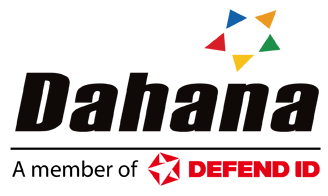The implementation of Risk Management at PT Dahana has been conducted consistently and comprehensively, in accordance with the international standard ISO 31000. As a result of this robust implementation, PT Dahana was invited by the Directorate General of Customs and Excise at the Ministry of Finance to participate in a sharing session focused on Risk Management within the company. During this session, Mohamad Nur Sodiq, the Director of Finance, Risk Management & HR, delivered a presentation at the “Risk Management Talk” held on Wednesday, November 19, 2025, at the headquarters of the Directorate General of Customs and Excise in Jakarta.
The event was opened by Mohammad Aflah Farobi, the Director of Revenue and Strategic Planning at the Directorate General of Customs and Excise. In his opening remarks, Mr Farobi highlighted the significance of implementing Risk Management to achieve the organization’s strategic goals. The Directorate General of Customs and Excise has established a Risk Management policy, which is implemented across all its service and operational activities. This sharing session aimed to provide insight into the implementation of Risk Management in companies, particularly in state-owned enterprises (SOEs) that partner with the Directorate General of Customs and Excise.
The session was attended by employees of the Directorate General of Customs and Excise who are responsible for managing Risk Management across various operational areas. Mr. Musafak, the Head of the Risk Management Sub-Directorate at the Directorate General of Customs and Excise, moderated the event.
At the start of his presentation, Mr Sodiq emphasized that for companies operating in the high-energy materials sector, such as Dahana, Risk Management is not merely an administrative formality but a vital foundation for business continuity. He stated that Risk Management concerns not just the future but also the impact of today’s decisions on the company’s sustainability.
Mr Sodiq then outlined the five dimensions of Risk Management implementation as defined in SK-8/DKU.MBU/12/2023: Risk Culture and Capabilities, Organization and Governance, Risk and Compliance Framework, Risk Processes and Controls, and Models, Data, and Technology.
Dahana’s Risk Management framework adheres to stringent regulations, including the ISO 31000:2018 standard and various SOE and holding Company regulations. The Company utilizes a three-line model to clarify coordination and responsibilities regarding Risk Management implementation, in line with best practices. This model delineates clear roles for risk owners, risk management units, and the internal audit function.
Participants were encouraged to ask questions and engage in discussions following the presentation. The enthusiasm of the audience was reflected in the numerous questions raised by both in-person and online attendees. The event lasted approximately 3.5 hours and concluded with a group photo session.
At the end of the event, Mr Sodiq expressed his gratitude to the organizing committee for ensuring the event ran smoothly. He hoped that the session would provide valuable insights and understanding regarding the implementation of Risk Management for all participants.



